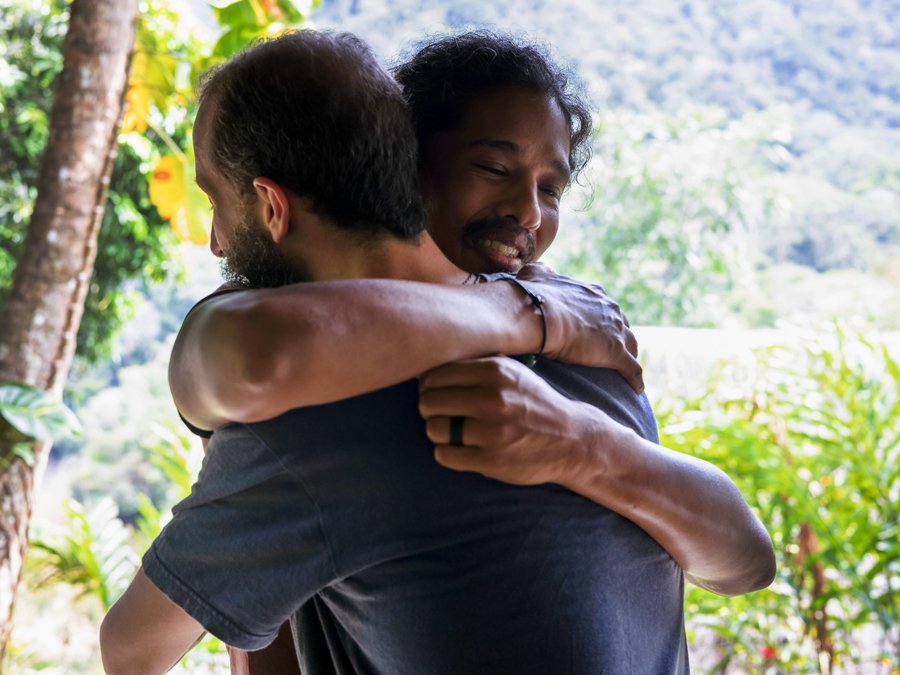
The Practices We Teach
At Lotus Vine Journeys, we guide you on a journey of heart awakening through Buddhist wisdom, sacred plant medicines, and meditation—inviting you to reconnect with your true essence and the unity of all life.
The Practices We Teach
Our teachings and practices are founded upon three core pillars: Ethics, Mindfulness, and Wisdom. These guiding principles are woven together with a deep cultivation of the heart and the development of Bodhicitta—a Sanskrit term meaning "the awakened heart" or "the heart of enlightenment." Bodhicitta is the sincere aspiration to benefit all beings and to bring love and compassion into every aspect of life. Through this foundation, we aim to support each person in awakening their innate goodness and aligning with their highest intentions on the path of healing and transformation.
The Five Trainings
The Five Trainings provide a pathway to "plant wholesome seeds of happiness" in our lives, inviting us to bring mindfulness, compassion, and integrity into each moment. These practices remind us of our deep interconnectedness with all beings, encouraging us to embody kindness toward ourselves, others, and the natural world. Through each training, we cultivate a life rooted in respect, awareness, and love—creating a ripple of positive energy that nurtures both our inner and outer worlds.
An Ethical Practice in Love and Wisdom
Mindfulness Meditation: Tools for Life and Ceremony
At Lotus Vine Journeys, we incorporate daily meditation practices and teachings led by Spring Washam or an experienced teacher. These sessions, complemented by mindful movement and yoga, are accessible to all levels and emphasize connecting with the body in a nourishing, present way. Our classes are designed to help you open, relax, and attune your body and nervous system, providing valuable tools for both ceremony and everyday life.
The Buddha invited us to "Come and see" for ourselves the truth of how things are. Through meditation, we engage in fearless self-inquiry, awakening the heart and moving toward inner freedom. Meditation teaches us how to be fully present, a practice that brings profound transformation as we learn to dwell in the "now." Often, we are caught up in past regrets or future worries, distracted by thoughts that cloud our inner peace. Meditation serves as an antidote, helping us break free from repetitive mental patterns and reconnect with the joy and wisdom of each moment.
Insight Meditation (Vipassana)
Our primary meditation practice is Insight Meditation, or Vipassana, which means "clear seeing." This simple, heart-centered technique invites us to anchor our awareness in the breath and body, cultivating a calm and focused mind. Vipassana helps us see through our conditioned mind, opening us to live more fully in the present. Over time, we develop deeper levels of wisdom and compassion, allowing us to respond skillfully to life’s challenges.
Mindfulness as Medicine
Mindfulness, or sati, is the practice of direct, non-judgmental awareness. By paying attention to our inner experience, mindfulness allows us to see the root of stress and suffering within our own minds. Instead of reacting automatically to thoughts and emotions, we observe them, creating space for insight and choice. Mindfulness helps us understand tendencies like desire, anger, and confusion without being controlled by them. In this way, mindfulness acts as a powerful medicine for the mind, illuminating our habitual patterns and freeing us from them.
As we deepen in mindfulness, we experience moments of insight—those “Aha!” moments that reveal deeper truths about our nature. These realizations often arise spontaneously, creating a subtle but lasting shift in our perception. Through this practice, we begin to uncover the radiant clarity and freedom that reside within us, and our sense of oneness with all life becomes an embodied experience. Meditation, mindfulness, and insight lead us gently back to our true nature. By resting in presence, we experience healing and transformation, guided by the wisdom of our luminous, authentic self.






Cultivating the Great Heart: Practices of Loving-Kindness and Self-Compassion
At the heart of our journey lies the aspiration to open fully to love and compassion—for ourselves and for all beings. In Buddhist tradition, this boundless love is often called the "Great Heart," a wellspring of kindness that naturally flows when we remember our interconnectedness. Through the practices of Metta (loving-kindness) and self-compassion, we cultivate this Great Heart, learning to hold ourselves and others with genuine warmth, care, and acceptance. These practices invite us to soften, expand, and meet each moment with an open heart, awakening our natural capacity for joy, compassion, and resilience.
Metta Practice
Metta, a Pali term for friendship, goodwill, or loving-kindness, is a meditation practice that nurtures our innate ability to open our hearts to ourselves and all beings. During our retreats, we cultivate Metta as a way to experience the warmth and depth of genuine kindness, creating a foundation for compassion, joy, and equanimity. This practice helps us to embrace others and ourselves with acceptance, revealing our deep connectedness to all of life.
Self-Compassion Practice
Self-compassion is the foundation upon which a truly open and loving heart rests. Through self-compassion, we learn to meet our own suffering with understanding and patience, becoming a source of support and wisdom for ourselves. This practice guides us in responding wisely during difficult times, allowing us to hold both our joys and sorrows with care. In doing so, we strengthen our capacity to be caring, altruistic, and loving toward others as well as ourselves.






